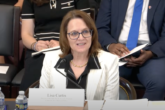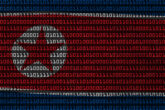April 25, 2009
U.S.-DPRK Nuclear Negotiations: A Survey of the Policy Literature
North Korea’s nuclear program is one of the longest-standing and most difficult proliferation challenges the United States faces today. In many ways, the regime and its nuclear program stand as relics of the Cold War, seemingly at odds with the rapid development of the rest of the Asia-Pacific.
Yet as negotiations have dragged on through the post-Cold War and post-9/11 eras, the nature of the North Korean threat has evolved and become interwoven with the new challenges of the 21st century. Like Presidents Bush and Clinton before him, President Obama will likely discover that the issues he faces in North Korea are both frustratingly static and ever-evolving.
Over the past three administrations opinions about the most effective means to handle North Korea have been sharply divided between hawks and doves, often (but overly simplistically) represented by the partisan divide between the Republican and Democratic Parties. The main points of contention between hawks and doves have remained relatively constant over time, leading to an ongoing cycle of repetitious policy debates. Three primary issues stand out in these debates: 1) containment and/or regime change vs. engagement, 2) verification of previous activities vs. prevention of future capabilities, and 3) sequencing – “nukes first” or an “all in” agreement. In addition to these debates, hawks and doves have often been divided amongst themselves over additional issues such as when and how to incorporate multilateral partners, whether to use a regional or global approach to nonproliferation policies, and how to balance an appropriate mix of “carrots” and “sticks”.
Although these debates have remained relatively constant, U.S. concerns over North Korea have broadened and evolved over the past decade, forcing policymakers to grapple with a more complex set of security challenges. By the end of the Clinton administration, U.S. policymakers could no longer focus only on North Korea’s plutonium reprocessing: The North Korean problem also included one of the world’s largest ballistic missile development and proliferation programs; a possible uranium enrichment program; a growing trade in arms, narcotics, and counterfeit currency; human rights abuses; and growing ties between North Korea and other rogue regimes. As a result, U.S. negotiations with North Korea have become weighted down by the sheer number of concerns on the table. Additionally, in the post-9/11 era, many of these issues have become interconnected with the broader “global war on terror,” making it difficult to deal with North Korea on its own terms.
More from CNAS
-
Assessing the Terror Threat Landscape in South and Central Asia and Examining Opportunities for Cooperation
Watch...
By Lisa Curtis
-
Indo-Pacific Security / Energy, Economics & Security
What Will North Korean Cybercrime Look Like in 2022?North Korean hackers will likely continue to employ more phishing campaigns in the future while tailoring their level of obfuscation based on the target’s sophistication....
By Jason Bartlett
-
Duyeon Kim testifies before European Parliament's Committee on Foreign Affairs
Chairman McAllister, Vice Chairs, DKOR Chairman Mandl, and distinguished Members of the Committee on Foreign Affairs and the European Parliament, thank you for the opportunity...
By Dr. Duyeon Kim
-
China’s New Land Borders Law Is a Nightmare for North Korean Refugees
A combination of high-level pressure from foreign governments and steady support for grassroots refugee resettlement organizations and programs is the most practical way to as...
By Jason Bartlett


